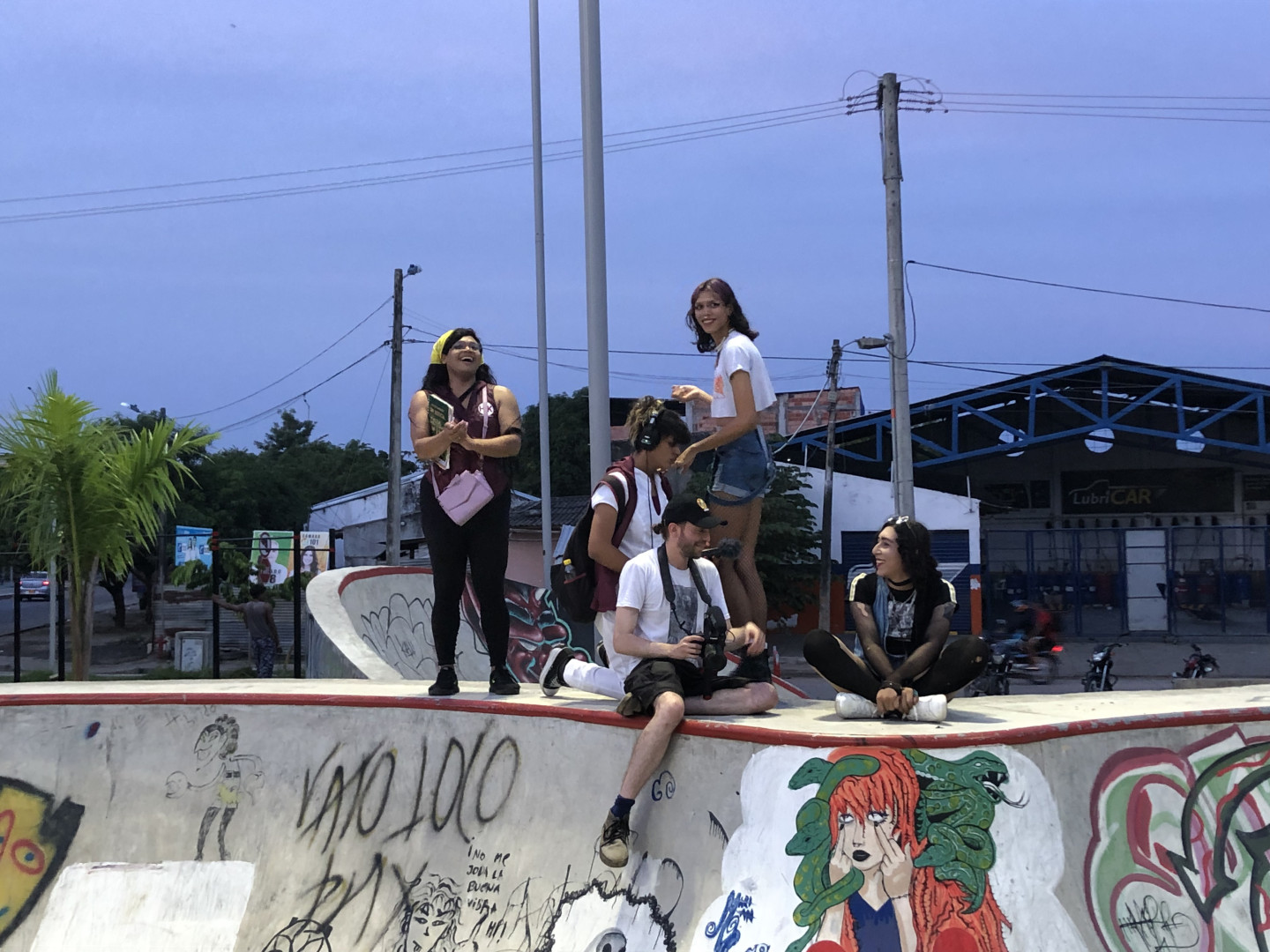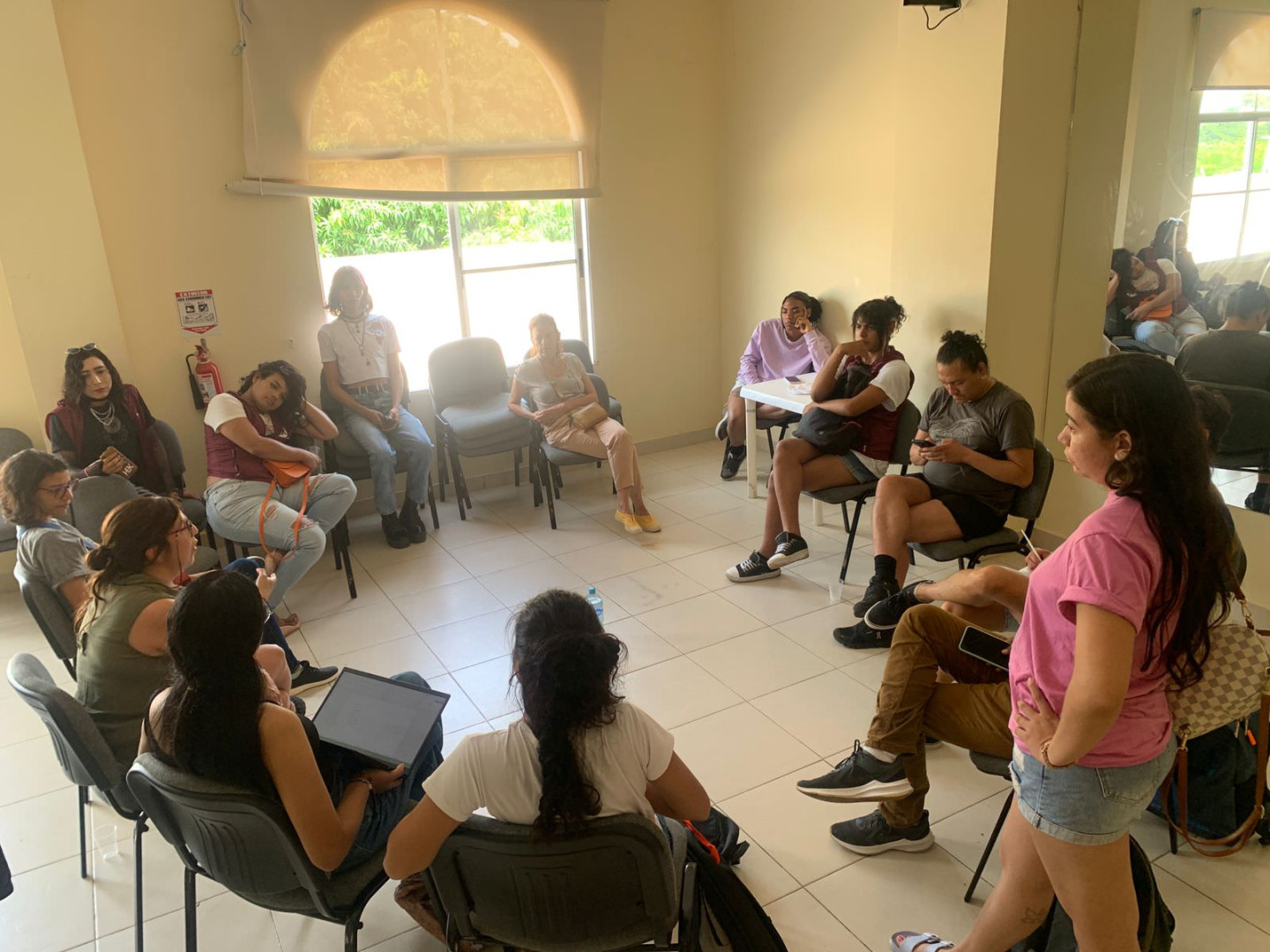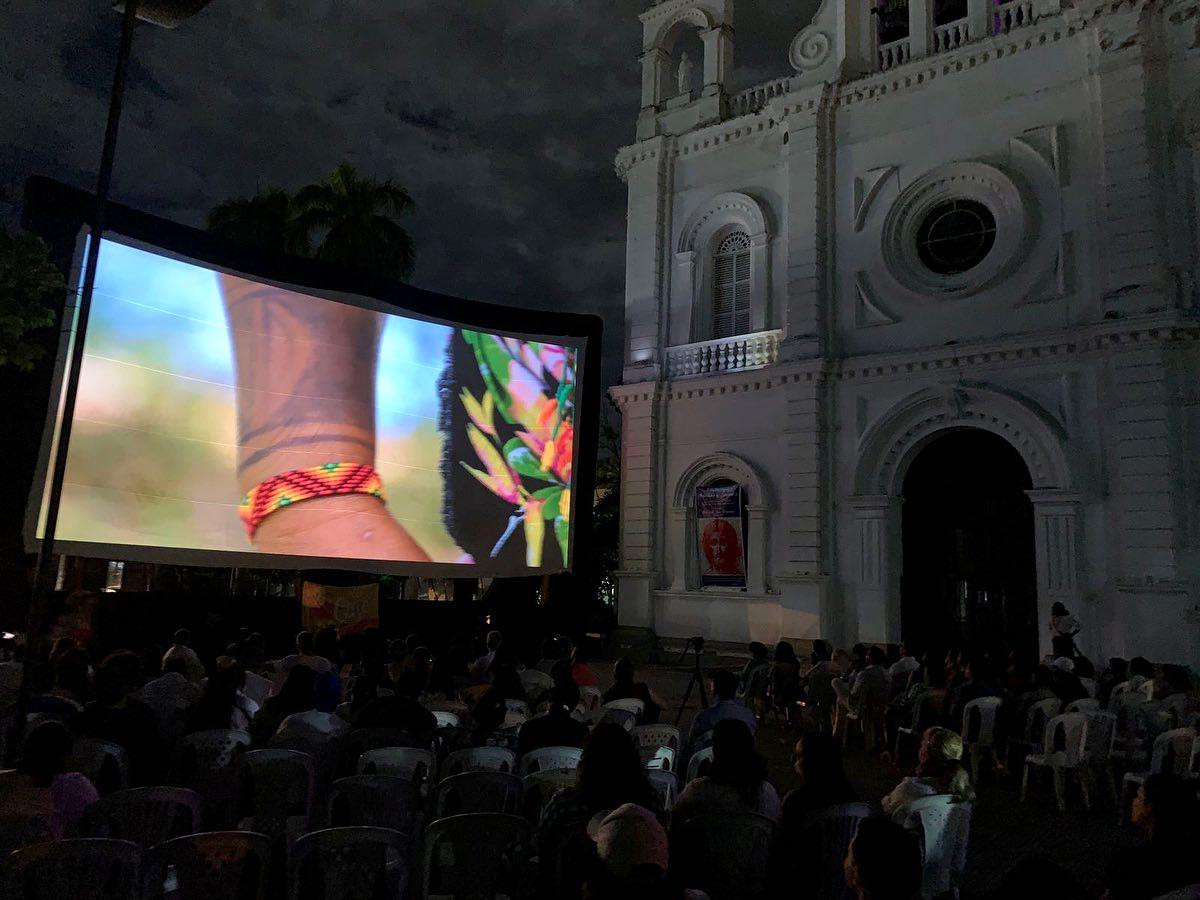In Colombia, community cinema plays an essential role in community peace-building because it allows them to make their stories visible. However, communities often lack the training and resources to produce them. EUNIC Colombia partnered with Historias en Kilómetros-HEK with the aim of strengthening the presence of community cinema in the country and having an international presence. An exchange between European filmmakers and local producers created the opportunity to build an intercultural alliance to provide local producers with adequate tools to produce professional films.
Outcomes
The project activities took place from July to December 2022 and included three main activities that boosted the creation of community cinema and its visibility at local, national, and European levels. These activities included an initial virtual training conducted by the European filmmaker with the three local teams he/she will later work with on-site; a one-week creative residency with the local teams in two territories (Ocaña, Norte de Santander; and Montería, Córdoba) that will lead to the production of three short films; and a screening on a giant screen of the short films to the community where it was made (Aserrío, Norte de Santander and Montería, Córdoba.
The project received 30 direct participants between the local teams and the European filmmakers, who worked intimately for three months, building long-lasting bonds of trust and collaboration. The screening of the short films had an impact on approximately 800 participants that, between Aserrío and Montería, gathered to celebrate the resulting short films. These participants had never had a giant screen come to their communities to show stories about them, their realities, struggles, and dreams; such as violence against women, the LGBTQI+ stigma, and the historic struggle of the Colombian rural community.
The project created a strong bond of trust between the local teams - a women's community that supports women victims of the armed conflict, an LGBTQI+ group that forms support networks, and a community of farmers from the country's rural area - and professional European filmmakers based on a horizontal dialogue. The project team reported this connection as the seed for future professional collaborations to empower new, original projects that unite European and Colombian experiences into revolutionary narratives. This was measured constantly by HEK, following step by step the relation between all members of the project. Special attention was placed on the horizontal nature of all interactions to create a network of intercultural exchanges and constant learning between European filmmakers and local teams.
This peace-building initiative generated spaces representing the local teams’ communities by gathering communities heavily affected by the armed conflict around a giant screen built especially for the diffusion of the resulting short films, one of the few cultural spaces to which they have access. As seen in our behind-the-scenes video, this was measured by the public’s reaction to the screening events. The project reached a generation of children who do not have access to the cinema, and with this experience, they were able to have it for the first time.
Challenges and Learnings
The most challenging situation for achieving our objectives was the social and environmental realities of Aserrío, Norte de Santander. This particular location has a complex social reality that involves security risks that needed to be addressed through protection protocols, and winter in the area generated landslides that made it extremely complicated to reach it. This is a rural area with no access through main roads, only small paths easily blocked by debris. In the face of these realities, there was the possibility to cancel the screening or move it to another location. This solution, although much simpler for the project, would have deprived the community of experiencing the resulting films, since it was in Aserrío where the community could gather to see the films. In light of this situation, the project team decided to postpone the screening and created strong security protocols alongside the community to withstand both the social and the environmental realities. Thanks to the time and effort put into creating these protocols, the screening was able to happen in Aserrío on December 2nd, where approximately 500 community members gathered around a giant screen to witness the resulting short films depicting their realities. The project team learned the importance of generating strong protocols such as these in order to continue generating lasting bonds between the communities all around Colombia and the European filmmakers and embassies we hope to continue to work with in the future.
The project reinforced joint cooperation between EUNIC members through weekly coordination meetings led by the Spanish Embassy. In its implementation, the members contributing to a filmmaker monitored the activity and the filmmaker's stay in the country, collaborating in the project's design, dissemination, and visibility, representatives from all embassies were present in at least one of the screening events.
The project created a network of interactions between partners with a cross-cutting approach guided by the common cultural principles defined in the Cluster Strategy. In this regard, the EU Delegation helped to identify and monitor the alignment of project activities with the SDGs and to give visibility to their impact in the context of peacebuilding. The lead partner, Historias en Kilómetros, coordinated all aspects of the local context and logistics. They shared their expertise in the design of the activities and the respective budget and provided the necessary tools to implement and disseminate this project in continuous contact with EUNIC members.
The importance of community cinema in collective life lies in getting together with others to transform the conditions that seem unfair to us in order to have, in this case, a Colombia with better living conditions for the communities that we portray with the films that we make.
Sonia Cifuentes, 38, Cisca Productions Team Member



